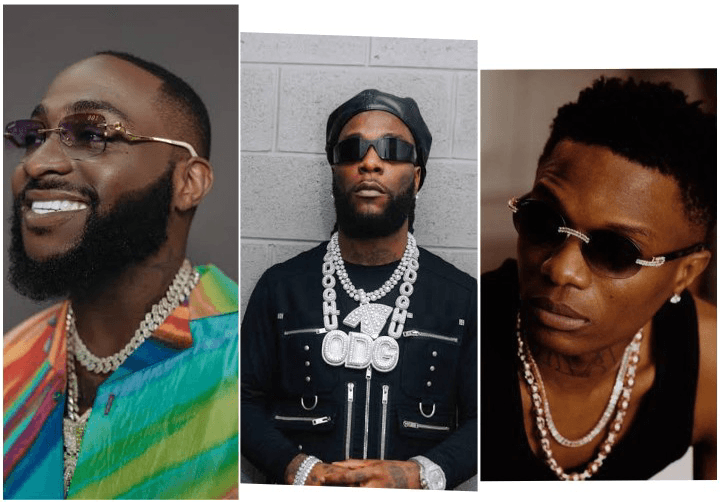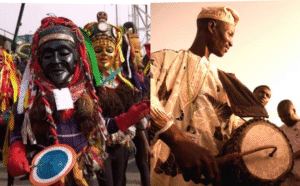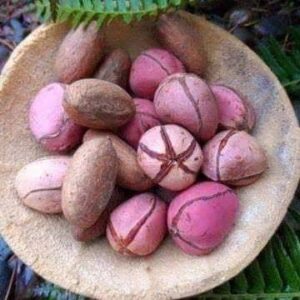Afrobeats is no longer just for Nigeria or Africa. It’s now a global sound. From Lagos to London, from Accra to Atlanta, the rhythm is everywhere. It’s in clubs, radio stations, and award shows. This is the Afrobeat global take over. But how did it all happen? And who are the stars leading this cultural wave?
Afrobeat started as a street sound — local, raw, and full of energy. Artists like Fela Kuti laid the foundation with socially conscious music and powerful rhythms.
Fast forward to 2025, and Afrobeat has evolved into a global genre. Big names like Burna Boy, Wizkid, and Davido, are headlining international festivals. Rema’s “Calm Down” remix with Selena Gomez topped charts in India, the U.S., and the Middle East.
This is no longer a trend. It’s a global movement.
Here we’re going to answer some reoccurring questions in the internet about Afrobeat tunes, kings prince and Queens. So let’s get started from here…
Is Afrobeats Taking Over the World?
The answer to this question is a big YES, afrobeat is one the widely streamed sounds globally not just in Africa.
It’s now one of the most streamed genres globally. Popular global artist like Drake, Beyonce, Selina Gomez are collaborating with Afrobeats stars. These songs are winning awards, trending on TikTok, and topping on international streaming platforms like, Spotify, YouTube, apple.
Events like Afro Nation, which started in Portugal, now happen in the U.S., Ghana, and other countries. Afrobeats is not just a sound; it’s now a lifestyle. The fashion, dance, and vibe have gone global. Afrobeat is a radical sound for a practical soul, not for who want sleep.
Who Took Afrobeat to the World?
Afrobeat didn’t just show up on the world stage by luck. It took bold artists, global collaborations, and years of hard work by top Afrobeat artists to make it the global sound we know today. From Lagos to London, New York to Nairobi, Afrobeat is now a dominant force in world music. But who are the people responsible for this massive shift?
Now let’s see these made significant impact in making a global sound
Fela Kuti
You can not talk of Afrobeat success without mentioning Nigerian music legend Fela Anikulapo Kuti. In the 1970s, he created a sound that blended traditional Yoruba music with funk, jazz, and highlife. But it wasn’t just about music. Fela used his songs to fight injustice, criticize government corruption, and uplift African pride.
His music didn’t win Grammys or top charts in the U.S., but his impact spread across the world. Fela influenced artists like Burna Boy and Wizkid, who often credit him for paving the way. According to BBC (2019), Burna Boy called Fela “his number one inspiration.”
P-square, 2Face, Don Jazzy D’banj Era;
Long before Burna Boy and Wizkid became household names in the West, the Nigerian music scene was booming locally and regionally thanks to a set of powerful pioneers. The 2000s to early 2010s were known as the Afrobeat golden era, and it was dominated by names like P-Square, Don Jazzy, 2Face and D’banj.
2Face Idibia’s hit song “African Queen” became a continental favorite and later caught attention abroad, featuring in the Hollywood movie Phat Girlz (2006).
P-Square, the duo of twin brothers Peter and Paul Okoye, were arguably Africa’s biggest pop stars during this time. With hits like “Do Me,” “No One Like You,” and “Personally,” they sold out stadiums across the continent and toured internationally. Their music videos had Hollywood-level quality, and their sound—a mix of highlife, pop, and R&B—set the tone for modern Afrobeat. In 2010, they collaborated with American rapper Rick Ross, signaling that global artists were starting to take Nigerian music seriously.
Don Jazzy, meanwhile, became the producer and architect behind many of the hits that defined the era. As co-founder of Mo’Hits Records alongside D’banj, he shaped a unique, polished sound that combined local rhythms with global appeal. Don Jazzy was more than a producer—he was a visionary. His beats were catchy, modern, and tailor-made for radio play.
D’banj, with his flamboyant energy and charisma, took Afrobeat to a new level. His 2012 global hit “Oliver Twist” became one of the first Nigerian songs to crack the UK Top 10. It was played on BBC Radio 1, MTV Base, and even on American airwaves. His signing with Kanye West’s G.O.O.D Music label made headlines, and although the deal didn’t last long, it proved that Afrobeat artists could land seats at the global table.
Together, P-Square, Don Jazzy, and D’banj laid the groundwork for what would become the Afrobeat global takeover. They pushed Nigerian music into clubs, festivals, and screens far beyond Africa. Without their influence and success during this period, the next generation of Afrobeat stars may never have gotten the chance to shine internationally.
These artists showed the world that Nigerian pop wasn’t just regional—it had global potential.
Wizkid:
Wizkid rose to fame in Nigeria, but his career went global when he collaborated with Drake on the 2016 hit “One Dance.” The track became a number-one song in the U.S., UK, and many other countries. Although many didn’t recognize Wizkid immediately, he kept building.
His solo hits like “Come Closer” and “Essence” solidified his position. In 2021, “Essence” became the first Nigerian song to break into the top 10 of the Billboard Hot 100. According to Billboard, it was also one of the most played songs on American radio that year.
Wizkid made Afrobeat fashionable, accessible, and radio-friendly to a global audience.
Burna Boy: The Grammy Winner
While others focused on singles, Burna curated full projects with strong African identity and international quality. His 2020 album Twice As Tall won the Grammy Award for Best Global Music Album.
This win wasn’t just about Burna. It showed that African artists could create music that met international standards without losing authenticity. As stated by Grammy.com, Burna Boy called his win a “big moment for Africa.”
Burna Boy proved that Afrobeat is award-worthy.
Davido: The Cross-Cultural Hitmaker
OBO brought a different energy and strategy. David Adeleke Raised in Atlanta but based in Lagos, Davido knew how to blend cultures. His hit songs like “Fall” and “If” became massive international successes. “Fall” especially broke records, becoming one of the longest-charting Nigerian songs in U.S. Billboard history.
Davido’s collaborations with artists like Chris Brown, Meek Mill, and Nicki Minaj helped Afrobeat gain fans in the U.S. His 2020 album A Better Time was packed with international features, showing how far Afrobeat had come.
Davido’s new hits are still topping on global charts
“Offa Me” (feat. Victoria Monét)
Released April 17, this Afrobeats‑R&B crossover debuted at No. 2 on the UK Afrobeats Chart and No. 5 on the U.S. Billboard Afrobeats Songs Chart—a historic simultaneous Top 5 debut .
“With You” (feat. Omah Lay)
Dropped April 18, this richly textured track blends pidgin and English and soared to No. 1 on Nigeria’s TurnTable Top 100, also debuting within the Top 5 in the UK Afrobeats Chart .
Afrobeat Young Stars
The question about who took Afrobeat to the world didn’t stop with Davido Wizkid or Burna Boy, there are waves of Afrobeat Young Stars whose tunes and melody are make waves in the industry too.
Tems. With her soft, soulful voice and emotionally rich sound, Tems brought a new feeling to Afrobeat. Her rise began with a feature on Wizkid’s “Essence,” a song that became a global anthem and broke into the U.S. Billboard Hot 100. But that was only the beginning.
Tems quickly became a favorite of international stars. She featured on Drake’s “Fountains” and on Future’s chart-topping hit “Wait for U,” which went on to win a Grammy Award. Her unique blend of Afrobeat, R&B, and alternative soul showed the world that African music could be smooth, emotional, and deeply expressive. As NPR Music highlighted in 2023, Tems redefined what it means to be a global African artist—not just through her voice but also her calm, confident presence and powerful storytelling.
Alongside Tems, a new class of young artists has pushed Afrobeat further into global pop culture. Rema is one of the brightest among them. His sound mixes Afrobeat with pop, trap, and futuristic rhythms. His hit “Calm Down,” especially the remix with Selena Gomez, broke streaming records and became one of the most played songs of 2023 worldwide, according to Spotify Wrapped.
CKay also found massive success with his breakout song “Love Nwantiti.” Thanks to TikTok, the song went viral globally and sparked dance challenges in dozens of countries. It became one of the most Shazamed songs in the world during its peak, proving that Afrobeat had fully entered the digital age of music discovery.
Fireboy DML brought a warm, romantic energy with his hit “Peru.” When Ed Sheeran joined the remix, the song reached international charts and opened new doors. His success showed that collaborations between African and Western artists were no longer rare, they were now expected.
This new generation, including Tems, Rema, CKay, and Fireboy, speaks directly to Gen Z. They are digital natives, trendsetters, and cultural bridges. Through them, Afrobeat has not only become a global sound but a global lifestyle.
Mr Eazi
Mr Eazi is not just an artist—he’s an Afrobeat entrepreneur. Through his platform emPawa Africa, he has funded and mentored dozens of African artists. His goal? To build a strong, independent African music ecosystem.
Eazi’s business approach has helped Afrobeat grow sustainably. According to TechCrunch (2020), he raised funding for emPawa to support the next generation of Afrobeat stars, proving that the movement is not just about music—it’s also about ownership and growth.
There isn’t one single person who took Afrobeat to the world. It was a journey carried by the voices, rhythms, and visions of many artists.
Today, Afrobeat is heard in Hollywood movies, played at major festivals, and streamed by millions worldwide. What started as a sound from the streets of Lagos has become a global celebration of African identity, youth culture, and creative power.
And the journey is just beginning.
Many people played a role, but some names stand out
Wizkid helped push Afrobeats to the global stage with the hit song “One Dance” featuring Drake in 2016. That song became a global anthem. Burna Boy also broke barriers, winning a Grammy and earning international respect.
Tiwa Savage, Davido, has also taken the sound to festivals and stages across the world. These artists, along with producers and more importantly DJs who brought Afrobeat into global playlists, with different tempo
Who Are the Big 3 Afrobeats?
Can we specifically say the Big 3 of Afrobeats are?
- Davido
- Wizkid
- Burna Boy
These three Nigerian stars have shaped the sound and pushed it across borders, no doubt, the’re big heads in Afrobeat that have played important and necessary background roles in Afrobeat sounds, Don Jazzy, D’banj, P-square Olamide, just to mention a few.
However these big has been on consistent level, They are top performers, trendsetters, and hitmakers. Each one brings something unique to the table.
Wizkid is known for his smooth voice and calm vibe. Davido brings energy and catchy hooks. Burna Boy mixes Afrobeat with reggae, dancehall, and pop. Together, they dominate the charts and rule the stage.
Who Is the Prince of Afrobeat in Nigeria?
Rema is often called the prince of Afrobeat in Nigeria.
He rose fast and has won many fans around the world. His song “Calm Down” featuring Selena Gomez was a major hit and topped several global charts. Rema’s style is fresh and different. He mixes Afrobeats with trap, pop, and even Indian sounds.
At a young age, he’s already performed in Europe, America, and Asia. Rema is the future of Afrobeats.
Who Is the King of Afrobeat in the World?
This has been consistent online debate between Davido, Wizkid and Burna Boy fans. But for the sake widely mentioned name when it comes to king of Afrobeat tunes I will give it Burna Boy
The title of King of Afrobeat in the world goes to Burna Boy.
Why? He won a Grammy for Best Global Music Album. He sold out massive venues like Madison Square Garden and the London Stadium. He’s respected by fans and musicians alike. Burna Boy uses his music to speak about African pride, politics, and unity. His voice is powerful and deep.
He’s more than a musician; he’s a movement.
Has Amapiano Taken Over the World?
Amapiano is growing fast, but it hasn’t fully taken over the world yet.
The genre started in South Africa and blends house, jazz, and log drum beats. It’s loved across Africa and is now reaching Europe and the U.S. Artists like Focalistic, Kabza De Small, and Uncle Waffles are gaining international fame.
While Amapiano is strong, Afrobeats still leads the African global music movement. But both genres can grow together.
Who Is the Father of Afrobeats?
Fela Kuti is the father of Afrobeat.
He created the original Afrobeat sound in the 1960s and 70s. It was different from today’s Afrobeats. Fela’s Afrobeat mixed jazz, funk, and traditional African rhythms. His songs were long, full of instruments, and always had a political message.
Fela was fearless. He used his music to fight for the people and speak truth to power. His legacy still lives on. Modern Afrobeats artists are inspired by his bold spirit and African pride.
Who Is the Biggest Afrobeat Artist in Africa?
Burna Boy is currently the biggest Afrobeat artist in Africa.
He performs all over the world, breaks records, and wins big awards. His albums like African Giant and Twice as Tall changed the game. His global influence is unmatched in Africa.
But let’s not forget about Davido, Wizkid, and newcomers like Asake and Fireboy DML. The competition is healthy, and Africa is winning.
Who Is the Queen of Afrobeat in Nigeria?
Tiwa Savage is often called the Queen of Afrobeat in Nigeria.
She has been in the industry for over a decade. Her voice, stage presence, and international collaborations set her apart. Tiwa worked with artists like Brandy and Beyoncé. Her songs mix love, power, and fun.
She opened the door for many other female artists in the genre. Other rising queens include Tems, Ayra Starr, and Yemi Alade.
Is Wizkid Afrobeat or Afrobeats?
Wizkid is Afrobeats.
The term “Afrobeat” (without the ‘s’) refers to Fela Kuti’s style—deeply rooted in jazz and political themes. “Afrobeats” (with an ‘s’) is the modern, more dance-focused sound we hear today.
Wizkid is one of the top faces of Afrobeats. His style is smooth, romantic, and catchy. He helped shape the new sound and bring it to global audiences.
Who Is the Giant of Africa in Music?
The “Giant of Africa” in music is Burna Boy.
In fact, he calls himself that. And he has proven it. Burna Boy brings African pride to his music and carries the continent on his back. From his lyrics to his fashion, everything screams “Africa to the world.”
Other giants include Wizkid, Davido, and international stars like Angelique Kidjo. But Burna’s reach and message are truly giant-sized.
What Is the Highest Charting Afrobeats Song?
As of now, the highest charting Afrobeats song on the Billboard Hot 100 is:
“Calm Down” by Rema and Selena Gomez.
This song reached No. 3 on the Billboard Hot 100 in the U.S. That’s a huge deal for a Nigerian artist. It shows just how far Afrobeats has come.
Other high-charting songs include:
- “Essence” by Wizkid ft. Tems (also a global hit)
- “Last Last” by Burna Boy
- “Unavailable” by Davido ft. Musa Keys
These songs are not just local hits—they’re global anthems.
Final Thoughts: The Afrobeat Global Take Over Is Real
Afrobeats is now a global force. It’s not just music—it’s fashion, language, dance, and culture. African artists are finally getting the spotlight they deserve. More people are listening, dancing, and falling in love with the sound.
From Fela Kuti’s early days to Burna Boy’s Grammy win, the journey has been long but powerful. And it’s far from over.
The future of music is African. The Afrobeat global take over is just beginning.




